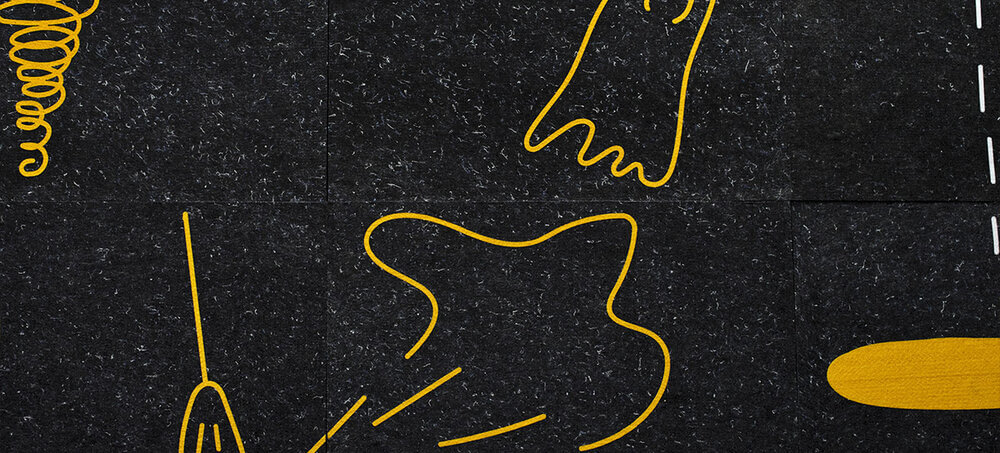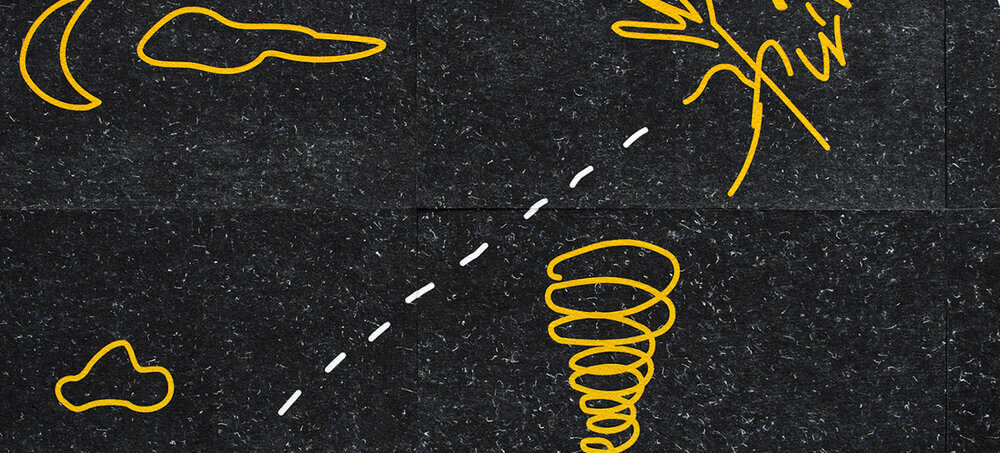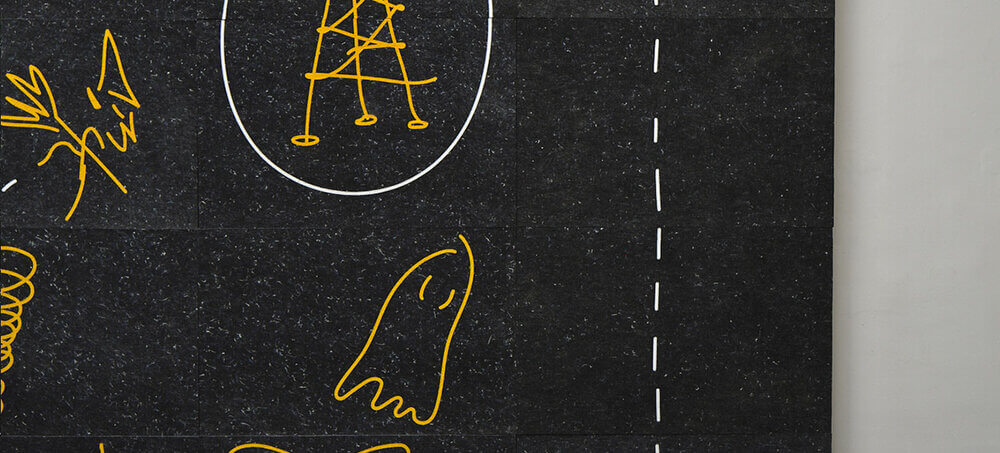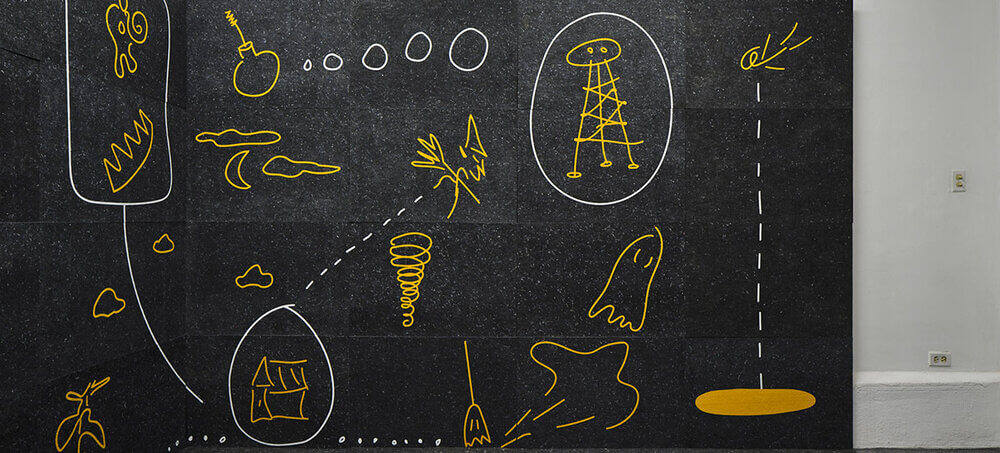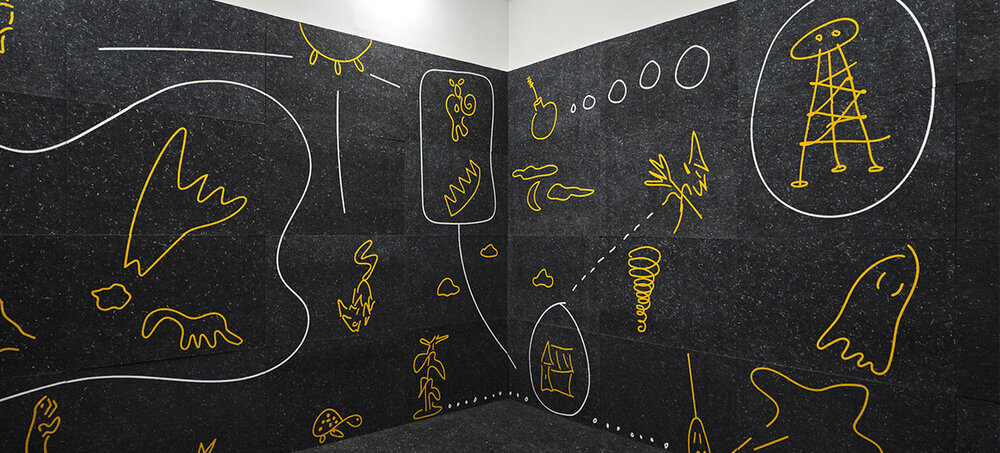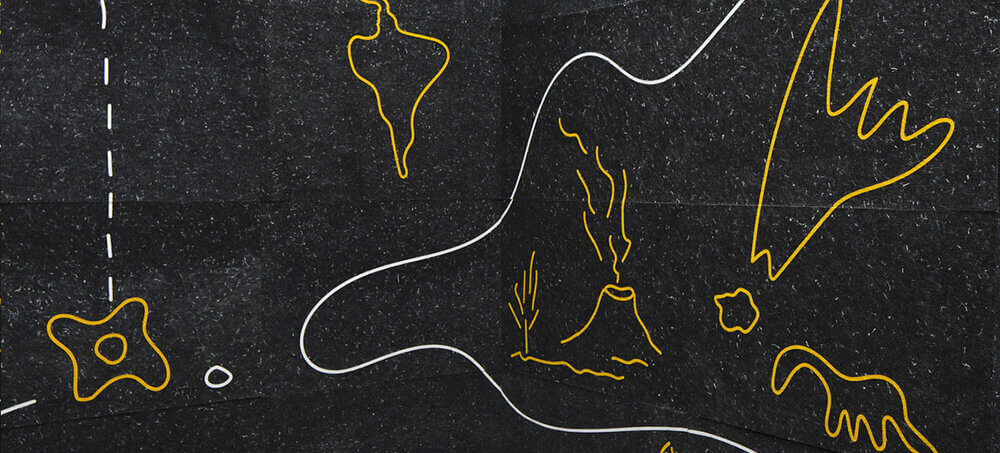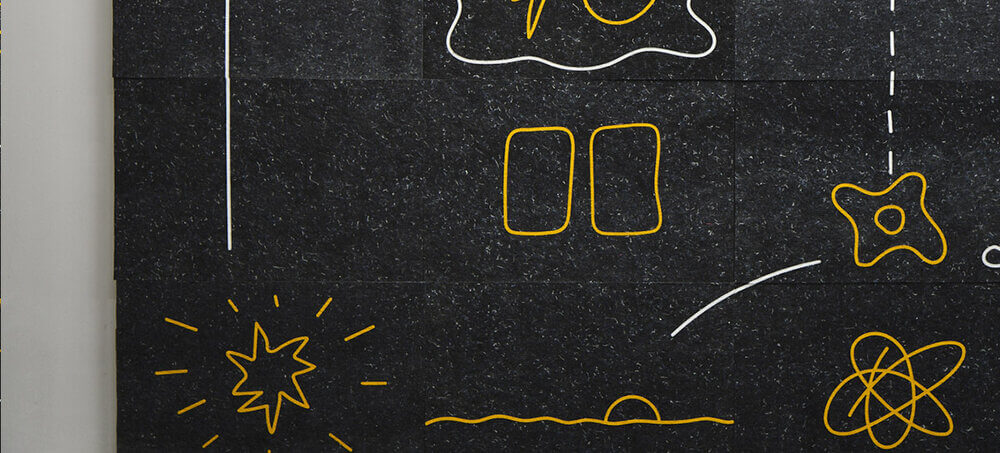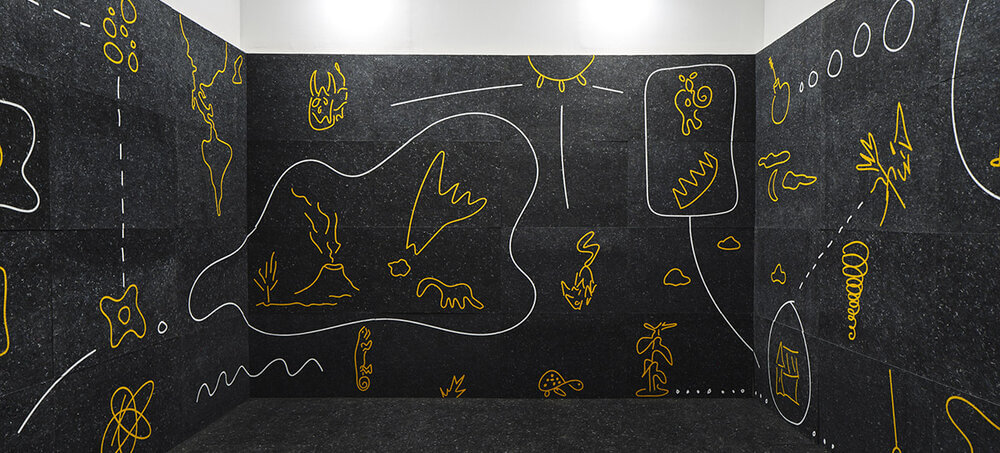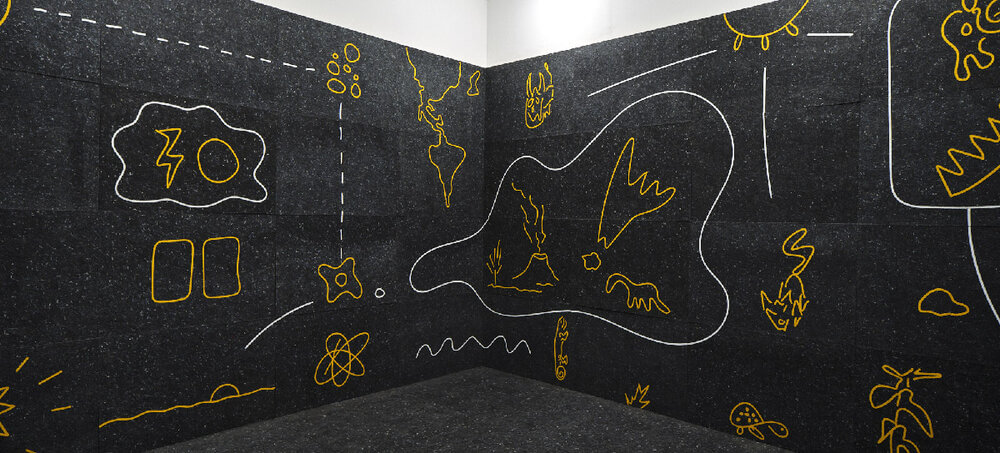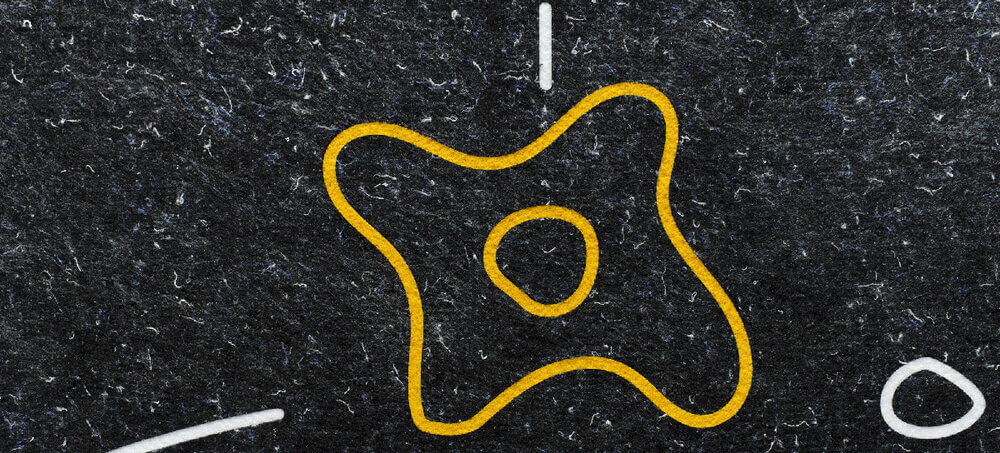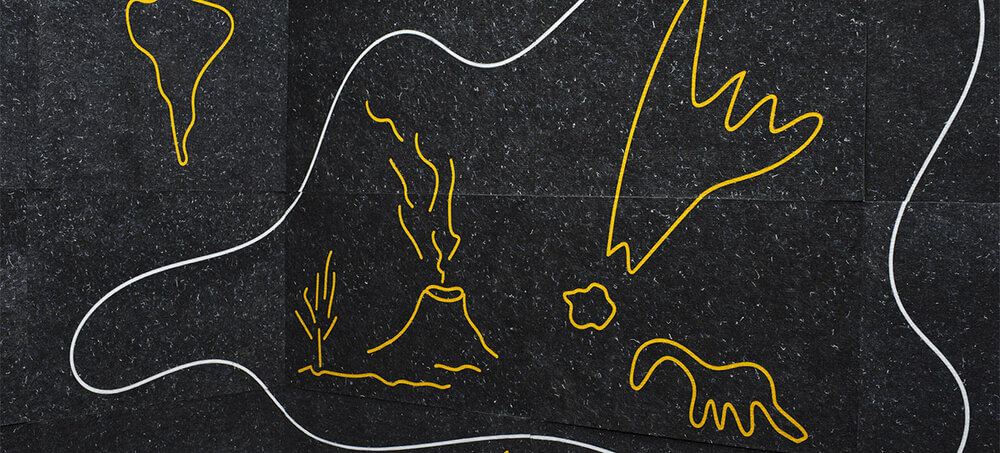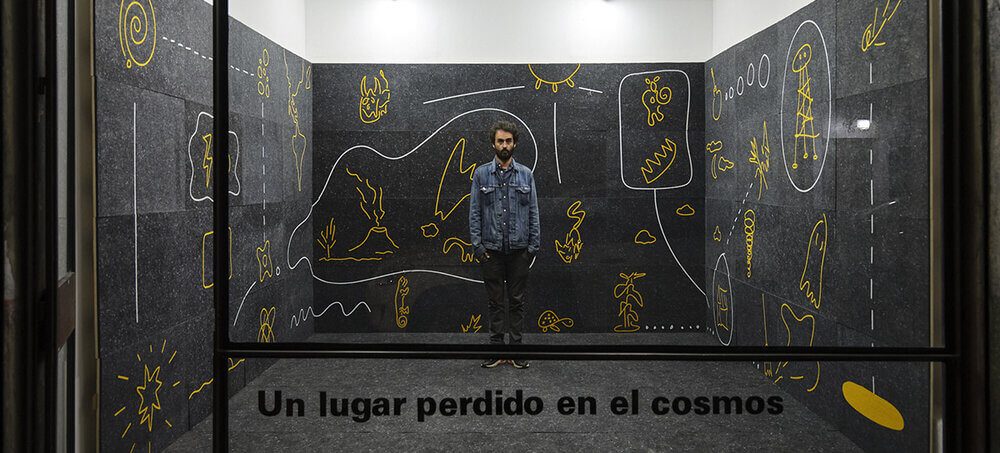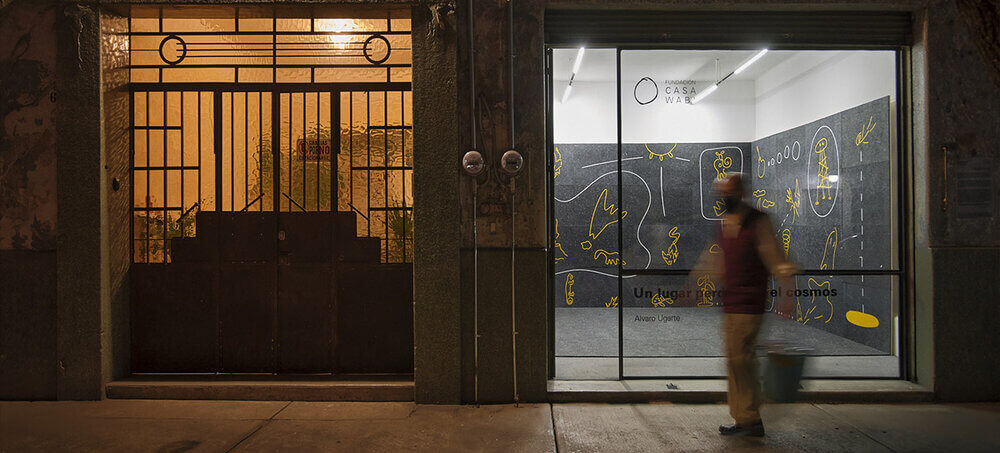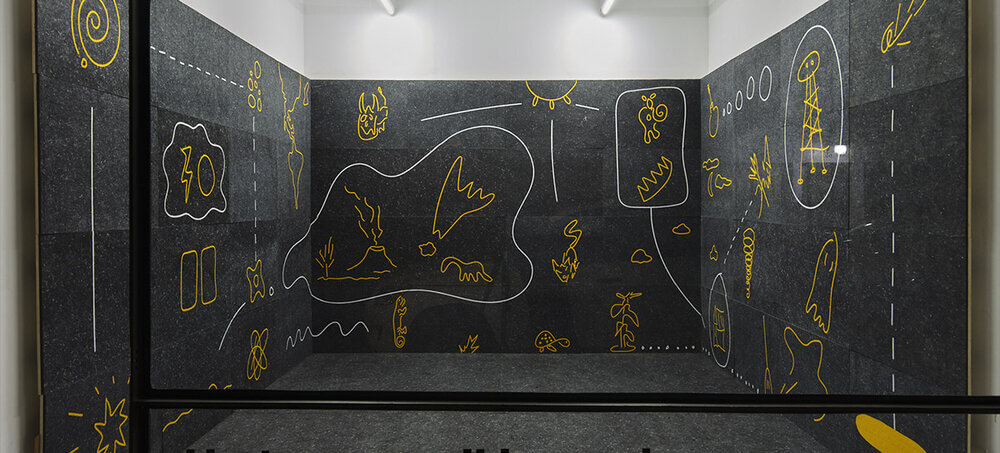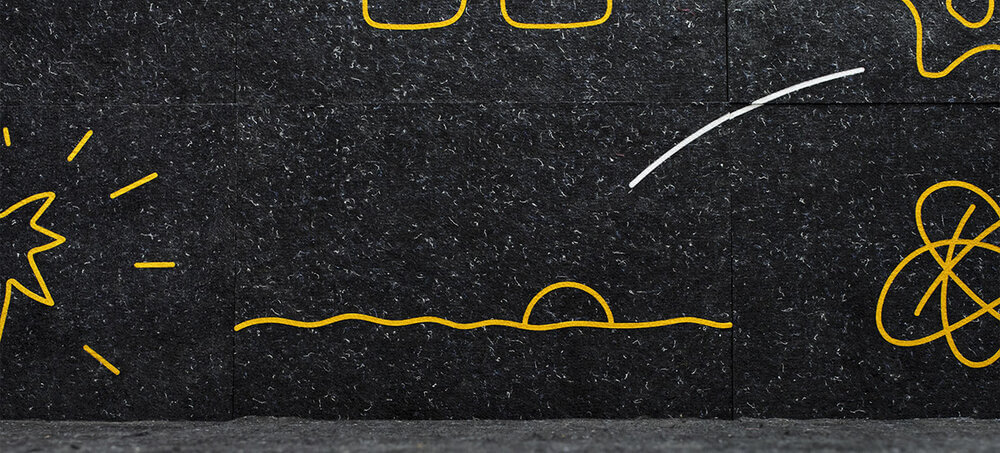Un lugar perdido en el cosmos
Alvaro Ugarte
29 de abril – 30 de junio 2021
We are made of star-stuff. We are a way for the cosmos to know itself
– Carl Sagan
How can our dreams attest to the social and cultural conditions in which we live? The artistic practice of Alvaro Ugarte (Jalisco, 1984) responds to these questions from the study of the dreams of specific communities in Mexico. This analysis allows the artist to build scenarios that reflect on the behaviors and social contexts of the groups that participate in these creative exercises.
Un lugar perdido en el cosmos (A place lost in cosmos) is part of this methodology as an immersive installation that departs from Ugarte’s community project during his residence at Fundación Casa Wabi’s venue in Puerto Escondido. Each of the drawings that make up the mural are pictorial abstractions from the children’s dreams at the San José Manialtepec community, on the Oaxaca coast. From this vast and diverse drawings catalog, the artist made a brief history of the universe’s evolution.
Formally, the mural is made up of felt panels that take the exhibition space. Ugarte’s brief history of the cosmos is divided into three sections: in the first – on the left side – begins with the Big Bang explosion and gives rise to the formation of galaxies, constellations, stars and planets, until we reach the creation of our solar system. The central section is focused on the development of planet Earth with its multiple ecosystems, plants and animals that inhabit it; the section also depicts volcanic shapes with dinosaurs and the appearance of mammals represented by an udder. The presence of the corn plant gives way to the third section, which explores the history of the human species, with its evolution from nomadism to sedentarism, and the development of complex social, spiritual and economic systems, with figures such as the shaman, the broom, the bomb or the antennas. The installation concludes with a nod to the uncertainty that the future represents for the development of species on the planet with a man falling into the void.
Ugarte conceives an imaginary narrative landscape that transcends his function and manages to access the worldview from the collective portrait of a specific social group.
Curator: Alberto Ríos de la Rosa
– Carl Sagan
How can our dreams attest to the social and cultural conditions in which we live? The artistic practice of Alvaro Ugarte (Jalisco, 1984) responds to these questions from the study of the dreams of specific communities in Mexico. This analysis allows the artist to build scenarios that reflect on the behaviors and social contexts of the groups that participate in these creative exercises.
Un lugar perdido en el cosmos (A place lost in cosmos) is part of this methodology as an immersive installation that departs from Ugarte’s community project during his residence at Fundación Casa Wabi’s venue in Puerto Escondido. Each of the drawings that make up the mural are pictorial abstractions from the children’s dreams at the San José Manialtepec community, on the Oaxaca coast. From this vast and diverse drawings catalog, the artist made a brief history of the universe’s evolution.
Formally, the mural is made up of felt panels that take the exhibition space. Ugarte’s brief history of the cosmos is divided into three sections: in the first – on the left side – begins with the Big Bang explosion and gives rise to the formation of galaxies, constellations, stars and planets, until we reach the creation of our solar system. The central section is focused on the development of planet Earth with its multiple ecosystems, plants and animals that inhabit it; the section also depicts volcanic shapes with dinosaurs and the appearance of mammals represented by an udder. The presence of the corn plant gives way to the third section, which explores the history of the human species, with its evolution from nomadism to sedentarism, and the development of complex social, spiritual and economic systems, with figures such as the shaman, the broom, the bomb or the antennas. The installation concludes with a nod to the uncertainty that the future represents for the development of species on the planet with a man falling into the void.
Ugarte conceives an imaginary narrative landscape that transcends his function and manages to access the worldview from the collective portrait of a specific social group.
Curator: Alberto Ríos de la Rosa

